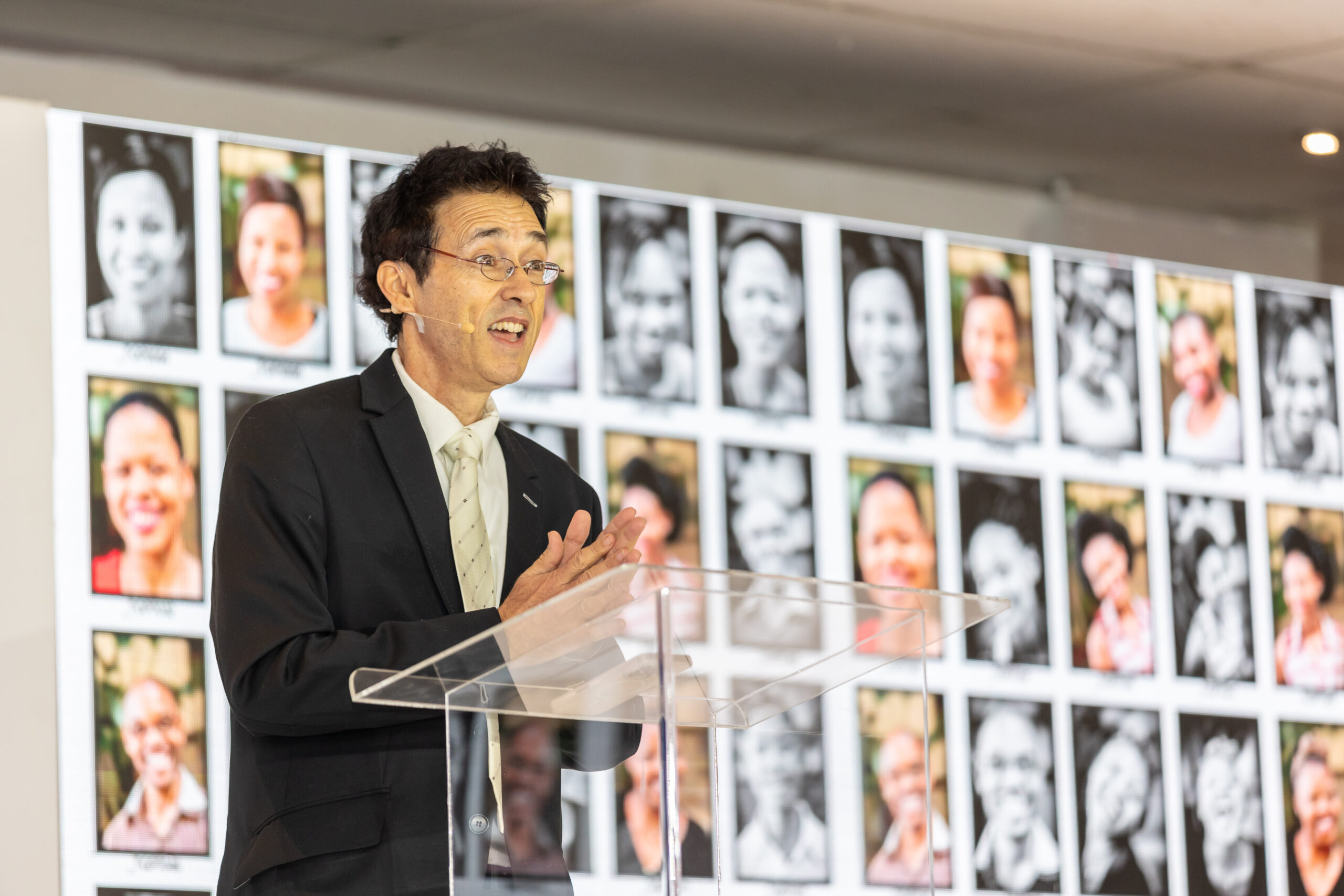
Banner

Historic Anglo building underpins Blecher’s ‘education city’
Published
8 months agoon
Nhlakanipho Chiliza grew up in a rural village in KwaZulu-Natal, raised alongside many siblings by his grandmother. When he finished high school, he worked as a taxi driver’s assistant and a gardener. Then he was given the opportunity to study for free at Dr Taddy Blecher’s Maharishi Invincibility Institute (MII), ultimately graduating with a Bachelor of Business Administration and an MBA from Wits Business School. He now works as head of sales and business enablement at Absa Capital.
The MII will now be able to help even more young people like Chiliza because Anglo American has donated its iconic 45 Main Street building in the Johannesburg central business district (CBD) to the MII, an accredited and registered non-profit South African skills-to-work educational institution.
Blecher, a King David schools alumnus, qualified actuary, and management consultant, says he envisages the new building as being part of an “education city” that can have a positive impact on South Africa’s future.
“Education is that one thing that is proven to change the future, and with the new building, we can grow to educating 5 000 students a year,” he says. “The new ‘gold’ of South Africa is the youth – they are our greatest asset.
“The tragedy in this country is that 67% of youth aged between 18 to 24 are unemployed,” Blecher says. “That’s two out of three youth, and we’ve got to change that statistic. Getting them into jobs across the digital sector, cybersecurity, finance, banking, insurance – it’s a socioeconomic game changer.”
As a registered private college created in 2007, the MII’s professional academies provide graduates with nationally accredited qualifications on the National Qualifications Framework, as well as sought-after industry certifications. These qualifications open doors to gaining scarce skills and hard-to-get jobs with leading employers.
Nolitha Fakude, the chairperson of Anglo American’s management board, says, “We firmly believe that Johannesburg’s inner-city regeneration hinges on nurturing the potential of its young people, who represent the city’s future. The MII has emerged as a driving force in paving pathways to opportunities for thousands of young people in the inner city, and it fills us with great pride to entrust them with the custodianship of the iconic 45 Main Street – a building that holds deep historical significance in Johannesburg’s evolution. Since its inception in 2007, the MII has offered critical skills training to more than 19 000 youth, most of whom are young black women, boasting a more than 90% job placement rate.”
Themba Mkhwanazi, Anglo American regional director for Africa and Australia, says, “When we look at the immense challenges that cities like Johannesburg face, they often mirror the challenges of our entire nation. As responsible corporate citizens, our duty goes beyond simply pointing out problems. We must actively engage and contribute to the solutions.
“The building, which forms part of our former Johannesburg CBD campus, will allow the institute to extend its impact, more than doubling the number of students it can support. The MII focuses on access to on-the-job training for students and actively works to help graduates secure sustainable jobs at some of the country’s leading corporates. This model and the support of the institute’s long-standing partners translates to a tangible difference in the lives of talented youth, helping elevate communities.”
Anglo American Corporate Services Manager Anton Uys says, “Since entering the CBD, MII has trained 19 073 graduates in scarce skills, boasting a 94% job placement rate. We’re privileged to have supported the MII’s vision by donating its current home in the CBD – 9 Ntemi Piliso Street – since 2004. This new donation ties in with our social-impact strategy, which focuses intensely on education, spanning early childhood development through to tertiary educational support, youth development, and youth entrepreneurship, among others.
“Following the donation of 45 Main Street, the MII has assumed full ownership of the building, including its upkeep and maintenance, while Anglo American continues its custodianship of the remainder of the precinct. Another achievement is our role in helping to establish the Johannesburg CBD Coalition, a platform that brings together several public and private organisations and visionary leaders committed to driving tangible transformation in the revitalisation of Johannesburg’s inner city.”
Blecher has never “dreamed small”, so his hope of an “education city” aligns with the impact he has already made on the country. In 1995, he received a job offer in the United States. However, the legend goes that after buying his plane ticket, he decided to remain in South Africa to create education and employment opportunities for disadvantaged youth. He hasn’t looked back since.
“Anglo American literally turned down four offers to buy the building for more than R100 million, and gave it to us to provide education and skills to youth forever in the city,” he says. “The building is absolutely magnificent, and it’s where we’ll provide free access to education at multiple levels. We’re deeply grateful [to Anglo American] for this incredible commitment to changing South Africa.”
They now have three buildings within a two-minute walk of each other. “Our dream would be to get to 40 000 students in the city and to bring in other educational institutions. There’s no great city in the world that doesn’t have strong educational institutions as its base,” Blecher says.
“Also, educational institutions can outlast businesses. For example, Oxford is turning 927 this year and Cambridge is turning 814, so this is for the long term. The city is a gateway between a huge amount of poverty in the south, and jobs in the north. The goal is to create a place of education, entrepreneurship, and employment for large numbers of people, and to bridge the southern and northern suburbs in this way, rather than millions of people commuting through the city to try to get to a job.”
Blecher says the MII has grown into a pre-school, a high school, a college, and 12 industry professional academies. “Our focus is to get youth into critical scarce-skill jobs. We have 45 national accreditations and offer more than 80 industry exams, and that’s growing all the time. Our goals are big. We also hope to take this model to multiple parts of South Africa as well as to other African countries.
“All challenges are surmountable,” he says. “We’ve never had a cent from government. We get only R200 maximum from students. Our high school students are on full scholarships. So, it’s about building a model that is financially sustainable. We’ve got a number of income streams. We leverage black economic empowerment as much as possible. We help companies get great score cards. And in the process, we help many youth.”
Blecher isn’t naïve, and says, “Clearly there are a lot of things to be concerned about in South Africa. However, I remain hopeful that South Africans can work together and fundamentally change the future. I remain an optimist because I see every day what we’re able to do in partnership with incredible businesses and communities.”
He believes the South African Jewish community has always played a vital role in building the country, and must continue to be active participants in its present and future. He’s deeply grateful to the MII’s many Jewish supporters. “We can be very proud. We’re a tiny community, but we’re robust and achieving way beyond our numbers. My belief is that the community is only going to add more value.”










